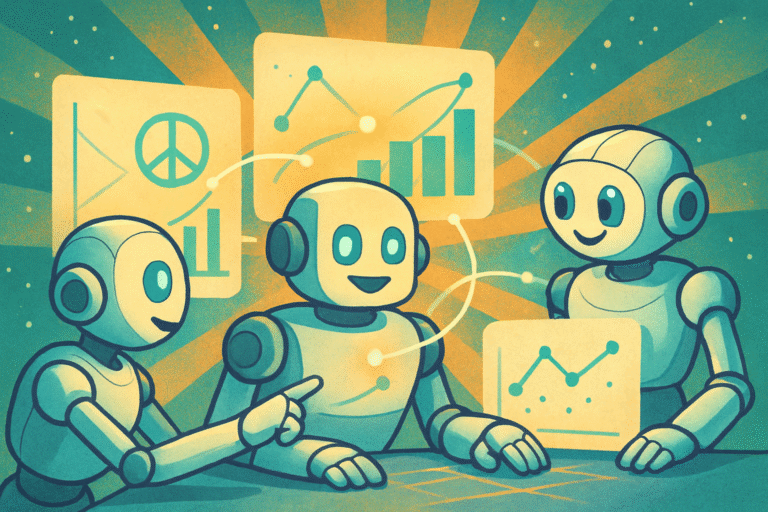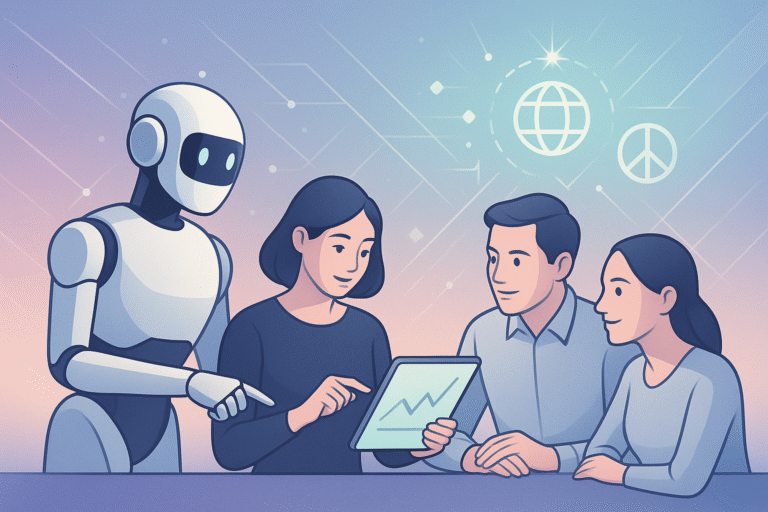In a world where technological advancements seem to come at an ever-accelerating pace…
In a world where technological advancements seem to come at an ever-accelerating pace, it is easy to become overwhelmed by the scale of change. Yet, when we step back and view these developments in terms of the grand timeline of human evolution, it becomes clear that progress—though often disruptive—is an inevitable and natural force. This is the lens through which I reflect on my partnership with Arbad Tahir, a young man in Islamabad and the head of his design firm, and how our collaboration, along with the progress of AI and renewable energy, mirrors the ongoing evolution of human society itself.
Boulder, Colorado, a city celebrated for its innovative spirit and commitment to sustainability, is a place where optimism thrives. My platform, boulderbubble.com, seeks to share this optimism, highlighting the ways in which technology, community, and sustainability intersect to shape a brighter future than other news sources are telling you. It is through this lens and my LinkedIn Decarbonization Innovation & Arts network that I first encountered Arbad Tahir’s work in Islamabad. Our partnership, a bridge spanning cultural and geographical distances, serves as a prime example of how the future is unfolding before our eyes—not as a distant possibility, but as an inevitable reality.
The relationship between myself, my Boulder Bubble, and Arbad’s design firm illustrates the global nature of progress. Despite the cultural differences between Boulder and Islamabad, our shared vision for using technology to create a better, more sustainable world binds us together. This partnership is not just a mere business transaction but a reflection of the global collaboration that will define the coming era—an era powered by renewable energy and guided by artificial intelligence.
This is not a speculative or wishful notion. If we look at history through the lens of geological time, we see that each of our lives is but a fleeting moment. Yet, within that moment, humanity has consistently moved toward greater efficiency, comfort, and cooperation. Consider the rise of the washing machine after World War II, which liberated women from the laborious task of washing clothes by hand. The washing machine, like so many other household technologies, did not simply make life easier; it was a step in a long process of human evolution, one that, over generations, often quietly has allowed people to pursue more meaningful and productive lives.
Similarly, the development of the COVID-19 vaccines stands as a monumental marker of human progress. This was not driven by religion or politics, but by the global scientific community working together toward a common goal. The speed at which vaccines were developed, tested, and distributed underscores the capacity for humanity to come together in the face of challenges, using science and technology to improve the lives of billions. The cooperation that defined this effort is one of the clearest examples of how, when the stakes are high, humanity can transcend its divisions and focus on what truly matters—the well-being of all people.
And now, we find ourselves on the brink of another great transformation. The partnership between Boulder and Islamabad is a symbol of this inevitability. As AI continues to evolve and renewable energy becomes the dominant power source for both cities and server farms worldwide, humanity is aligning itself with the natural order. Just as the planets orbit in harmony without colliding, human cooperation, powered by AI and renewable energy, will lead us toward a world where peace, prosperity, climate normalization and collaboration are not just possible—they are inevitable.
The key to this transformation lies in the very technologies that seem to be growing exponentially: artificial intelligence and renewable energy. Fossil fuels, which have long been the backbone of our energy systems, do not have the capacity to power the vast server farms required to run AI systems that cross-correlate data and make better decisions for humanity. These technologies cannot be fueled by outdated methods. As we rely more on AI to make informed, efficient decisions, and as renewable energy provides the sustainable power necessary to fuel that progress, the shift toward a more peaceful and prosperous world becomes clear.
In this world, the natural evolution of human society will make it evident that being kind, cooperative, and working toward the greater good is not only the right thing to do—it is also the most profitable and sustainable choice. As AI and renewable energy continue to evolve, they will not just shape the future of cities like Boulder and Islamabad; they will shape the future of humanity itself.
Thus, the partnership between Boulder and Islamabad is not an isolated event, but part of a larger, inevitable trend. Our shared vision for the future—one where AI aids decision-making and renewable energy fuels progress—is a glimpse of the future we are all moving toward. It’s not a matter of “if” we will cooperate, but “when.” As we look to the future, we will find that peace, prosperity, and collaboration powered by technology will no longer be the exception, but the rule. This is the natural, inevitable evolution of humanity—a force that will continue to guide us toward a brighter, more connected, and harmonious world.






